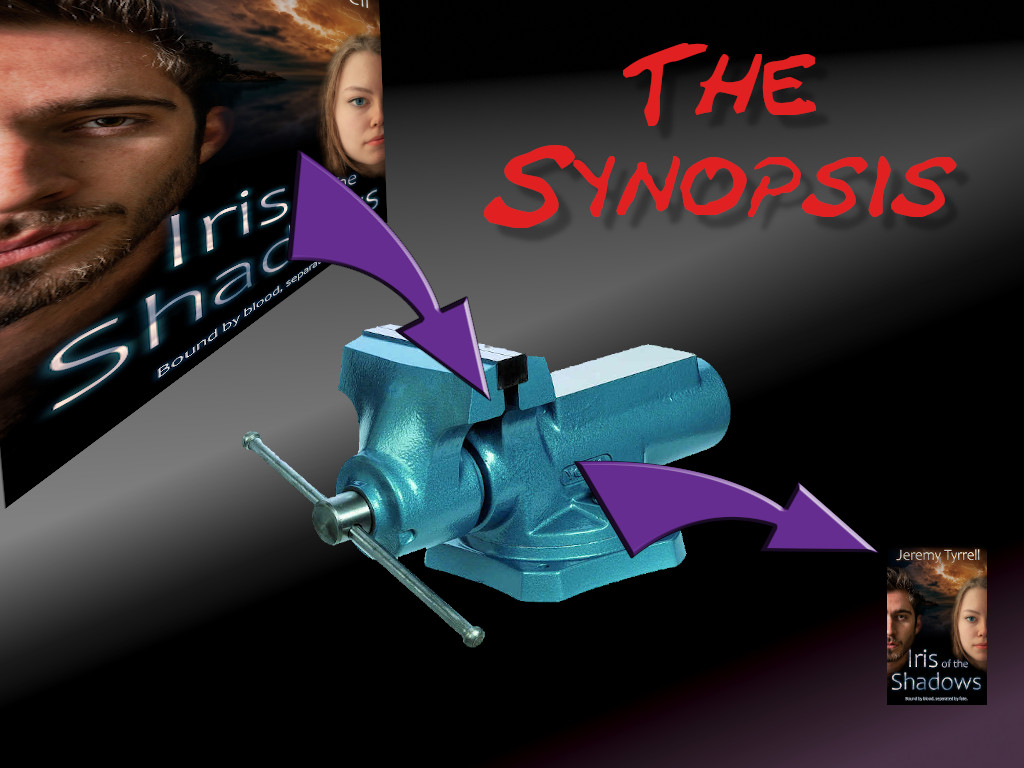To say that publishers and literary agents are pressed for time is to say that cats have a predilection for sleep. If there was some way, Matrix style, to compress and download the experience of reading a book into their heads, it would revolutionise the industry. Alas, no such plug-in-the-back-of-the-head technology exists just yet, so they are forced to do things the old-fashioned way: Reading the stuff.
Don’t get me wrong, they want books. That’s how they make a living:
No books = no business.
Pretty simple equation. So lots of books = lots of business, right? No, because of another another equation:
Bad books = bad business.
There lies the rub. If every scrap of paper passing their noses passed into the presses unvetted, they’d soon be run out of town. Their job is to not only get books out there, they must choose wisely.
On the flip side are the authors, those poor saps who have spent days, nights, weekends and holidays typing and mulling and poking and deleting and sweating it out, nervously coming to the end of the creation period, wondering if they’ve done enough, if they could poke it a bit more or if there was still some mulling to be done.
So you have your situation mapped out: authors producing books, and agents consuming them, only it’s not your classic producer – consumer scenario, not like, say, and ore mine and a smelter or a wheat farm and a mill. Ore is ore, of different grades, but it can be sampled and tested and graded objectively. Similar to wheat or wool or fish or whatever you like. Books are not the same.
Yes, objective measures can be placed on books to measure word count, grammatical errors, complexity of sentence, and all of that, and they give indicators, but, objectively, what defines a good book? Lots of words? Fewer words? Really long sentences? Adverb overloading? The answer is that it all depends on the audience, the genre, the tone and arc and premise and language and, well, too many things to consider. Sometimes the difference between a good book and a bad one is the mood of the reader.
In short, while the agents might be able to put a manuscript through a black-box and get a score for it, there are subtleties that apply here and not there, that make all the difference. And, of course, not everyone appreciates horror, or military fiction, or space operas, or vampire romances. So what is an agent to do? Read everything that comes under their noses? That’s an impossibility. The smartest thing is to weed out those books that you have a hunch won’t be any good, and take a closer look at those that seem alright.
Enter the synopsis. If you take your book and break it down into a one pager, what does it look like? One page? One page?? Are you serious?
Very. Agents and publishers may ask for a one pager, or even a limited word count. Like a blurb? No, not like a blurb. A blurb is there as a hook, a tease, a taste to get you chomping. The synopsis is, to be (grossly) blunt, the meal digested. Take an entire chapter and turn it into a sentence. Heck, if you can compress two chapters into a sentence, you’ve done alright. At the same time, you still need to keep some emotion in there, something to engage the reader. Sounds wrong, doesn’t it?
It feels awful doing it and, to be honest, I’ve shied away on a lot of occasions. With the first Tedrick Gritswell, I cringed all the way through writing it. The second, I only pulled a face a couple of times. This time around, with Iris of the Shadows, I deliberately stopped myself from biting my lip, rolling my eyes, squeezing my eyelid shut or pouting. I muscled through it.
The first iteration, I managed to make a two page synopsis. This was not enough for any decent submission, which is a little unfair, really, considering the book is sitting at +215k words. Still, in the interest of brevity, I went back over it again, slicing away anything even remotely trivial, removing adjectives and combing sentences. In the end, I got that puppy down to just under a page.
My advice? Be ruthless. Cut everything down to the bone. Leave nothing attached. Then, when it’s barely more than a bunch of words telling ‘what happened’, go back and sprinkle a little life onto the carcass, up to the point where you haven’t exceeded your quota. The end result is ugly, but it’s a necessary ugly.


